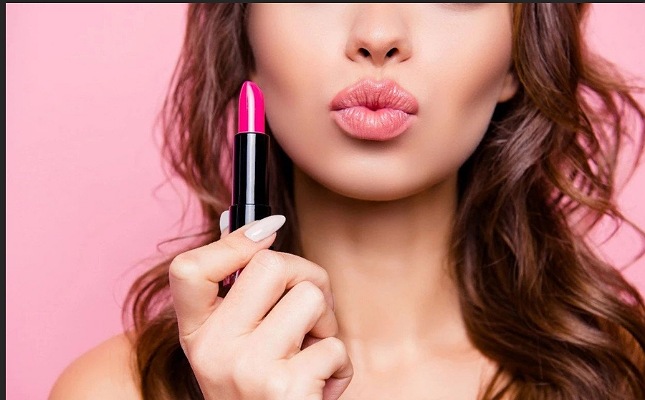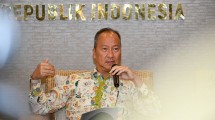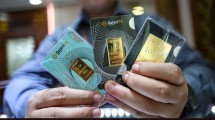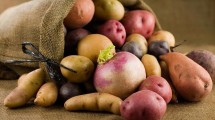How can Chinese Cosmetic Brands Seize The "Hot Land" of The Indonesian Market?
Oleh : Pan Yuexia, Master Of Technology Management Bisnis President University | Rabu, 15 Mei 2024 - 21:02 WIB

Ilustrasi industri kosmetik
INDUSTRY.co.id - The Indonesian cosmetics market has huge potential, becoming a new blue ocean
Indonesia is the world's largest archipelagic country and the fourth most populous nation, with an average age of 28.3 years old and a large youth population with strong demand for cosmetics. Affected by the pandemic, e-commerce platforms have become popular, and the cosmetics market has tremendous potential. According to GlobaData's forecast, Indonesia's cosmetics market is expected to reach 105.1 trillion Indonesian rupiah (approximately 507.6 billion RMB) in 2023, with the skincare industry being the fastest-growing segment at a compound annual growth rate of 9.6%.
Youth demographic dividend + e-commerce penetration, Indonesian market prospects are promosing
According to Statista, Indonesia's e-commerce transaction value reached $59 billion in 2022, with an annual growth rate of 22%, ranking third globally in terms of growth rate, and the online penetration rate is steadily increasing. With the popularity of new social media and the increasing penetration of e-commerce, Indonesian youth's enthusiasm for emerging cosmetic brands is escalating, with many new brands rapidly gaining traction and capturing market share from leading brands in a short period.
In addition to the demographic dividend, local consumers' awareness of the cosmetics industry is still in its infancy. It is understood that Indonesian locals have different levels of awareness of cosmetic ingredients, being familiar with whitening and anti-aging star ingredients such as niacinamide, retinol, and vitamin C, but have less knowledge of newer ingredients like collagen, bakuchiol, astaxanthin, and arbutin.
For cosmetic brands entering the market, this knowledge gap presents an opportunity to educate consumers by leveraging existing research results and marketing concepts from the domestic cosmetics industry, making it easier to capture and reshape consumer mindsets.
Local brands are slow to develop, international brands dominate
Data from Starnav Capital shows that in 2022, the top four market share holders in the Indonesian cosmetics market were Unilever's Pond's (13.4%), local brand Wardah (9.66%), L'Oréal Paris (3.35%), and local brand Viva (2.1%). Over the past five years, their market share changes were -6.6%, +1.1%, +0.2%, and -0.2%, respectively. It is evident that the market share of international brands in Indonesia has been gradually declining.
Moreover, international cosmetic brands in Indonesia are currently pushing their low-end product lines, such as L'Oréal's color cosmetics line primarily focusing on the low-end Maybelline brand, and Unilever's skincare line mainly focusing on Pond's, catering to consumers' basic functional needs.
Additionally, local Indonesian cosmetic brands are deeply rooted in offline channels, with low e-commerce penetration, and their strategies are not as diverse and comprehensive as those in China.
At the same time, the supply chain and product iterations of the local Indonesian cosmetics industry have lagged behind, with no brands emerging as leaders for many years, which has provided opportunities for foreign platforms to enter and establish brand competitive advantages.
Issues Chinese cosmetic brands need to consider when entering the Indonesian market
Firstly, in terms of consumer purchasing power, Indonesia is the country with the weakest consumer ability in Southeast Asia, with mid-to-low price ranges being the main price bands, and low product premiumization levels. Data from Starnav Capital shows that currently, the price range for mainstream skincare products in Indonesia is typically between 15-45 RMB, while mid-to-high-end product lines are priced between 50-100 RMB, only about one-third of the price of Chinese skincare products. Forecasts suggest that local consumers will remain highly price-sensitive in the coming years.
Secondly, the Indonesian cosmetics market is currently contested by multiple cosmetic forces, including European, American, Japanese, Korean, Chinese, and local Indonesian brands. The new generation of Indonesian consumers has a "love for novelty and disdain for the old" mentality.
In terms of brand perception, European and American brands rank first, followed closely by Korean brands, while Japanese, Chinese, and local Indonesian brands do not have a noticeable brand advantage. It is particularly noteworthy that Indonesian youth have an exceptionally strong affinity for Korean cosmetic brands.
Lastly, religious factors are another aspect that cosmetic brands entering the market need to pay close attention to. According to World Bank statistics from 2010, Indonesia is the country with the largest Muslim population in the world, with 87% of its population practicing Islam.
HALAL, or halal certification, refers to products that comply with Muslim lifestyles and needs. According to Bloomberg, Indonesia will implement a regulation this year requiring all products and services to obtain halal certification, including cosmetics.
Furthermore, Indonesians place great emphasis on offline product experiences. Cosmetic and personal care products entering the market not only need to focus on online channels but also prioritize offline sales, quickly establishing a presence in channels such as specialty stores, beauty stores, drugstores, department stores, supermarkets, and local convenience store chains that are in close proximity to consumers and meet their product experience needs.
Two paths to enter the Indonesian market: leverage local channels or digital marketing
Currently, domestic brands that have successfully entered the Indonesian cosmetics market have generally taken two approaches: one is to leverage local resources and rapidly penetrate local channels while establishing a complete product system; the other is to rely on mature cross-border e-commerce platforms, with digital marketing as the driving force, focusing on the local online market.
Seize Indonesian market development trends, unlock new brand opportunities
Just as European and American brands entered the Chinese market 20 years ago, Chinese brands now face a similar significant opportunity in Indonesia. With the advanced level of China's supply chain and the experience of Chinese teams in overseas e-commerce, there is great potential for Chinese cosmetics to enter the Indonesian market. Similarly, the Indonesian cosmetics market is still in its early stages of development, with challenges in areas such as market education, product supply chains, and sales channels. Cosmetic brands entering the market need to explore and cultivate it deeply, seizing the development trends of the Indonesian market to unlock new brand opportunities.
Industri Hari Ini

Rabu, 22 Januari 2025 - 14:15 WIB
Menperin Agus Bakal Tancap Gas Berlari Lebih Cepat Dongkrak Pertumbuhan Manufaktur Hingga 8 Persen
Pemerintah telah menargetkan pertumbuhan ekonomi Indonesia sebesar 8 persen pada tahun 2028-2029. Sebagai prime mover perekonomian nasional, sektor industri dibidik tumbuh 7,29 persen pada tahun…

Rabu, 22 Januari 2025 - 14:03 WIB
Catat, Ini Tips Sebelum Terjun ke Dunia Trading Kripto
Seiring dengan meningkatnya popularitas aset kripto sebagai sarana investasi, banyak orang mulai tertarik untuk terjun ke dalam dunia trading kripto. Namun, sebelum memulai perjalanan trading…

Rabu, 22 Januari 2025 - 13:50 WIB
Resmi Jalankan Kegiatan Usaha Bulion, Pegadaian Hadirkan Fitur Baru di Pegadaian Digital
PT Pegadaian didukung oleh Kementerian BUMN untuk menjalankan Kegiatan Usaha Bulion yang sejalan dengan misi dan program Astacita Pemerintahan Prabowo-Gibran khususnya dalam sektor Hilirisasi…

Rabu, 22 Januari 2025 - 13:46 WIB
Catat, Ini 5 Asupan Super Agar Kuat Bercinta!
Dalam kehidupan bercinta terkadang membutuhkan kekuatan ekstra, dimana kekuatan ekstra ini tentu membutuhkan asupan super dari makanan tertentu.

Rabu, 22 Januari 2025 - 13:34 WIB
Dukung Pertumbuhan Model Bisnis Pemeringkat Kredit Alternatif, OJK Terbitkan POJK 29/2024
Otoritas Jasa Keuangan (OJK) terus memperkuat perannya dalam pengembangan inovasi di sektor jasa keuangan dengan menerbitkan Peraturan OJK Nomor 29 Tahun 2024 (POJK 29/2024) tentang Pemeringkat…

















Komentar Berita